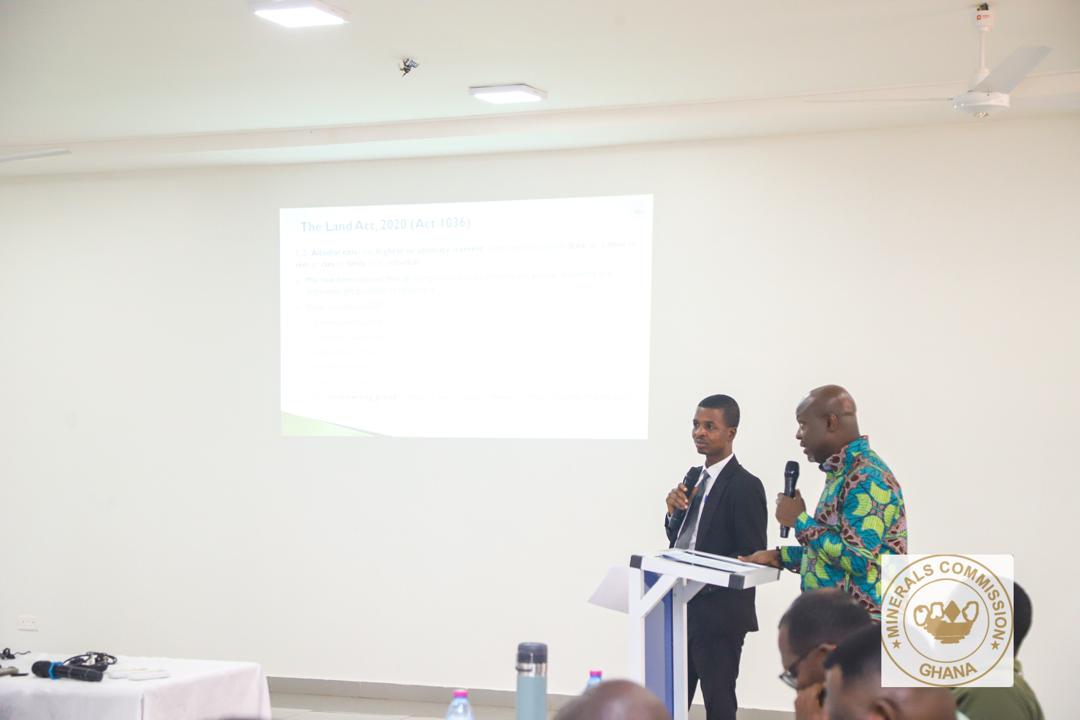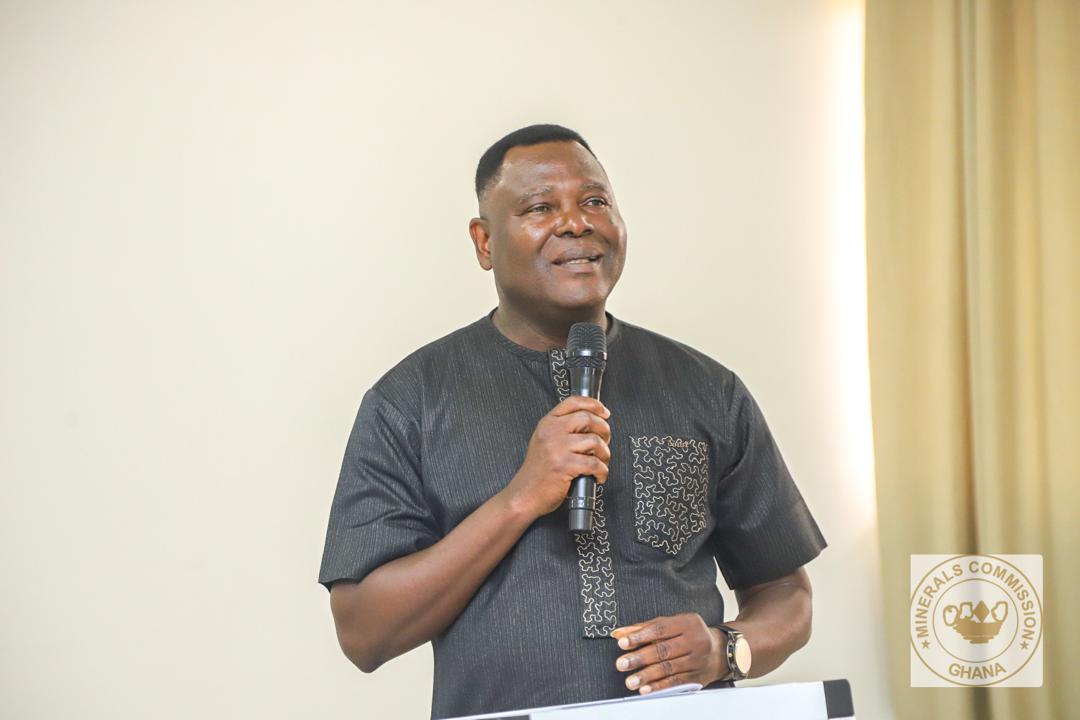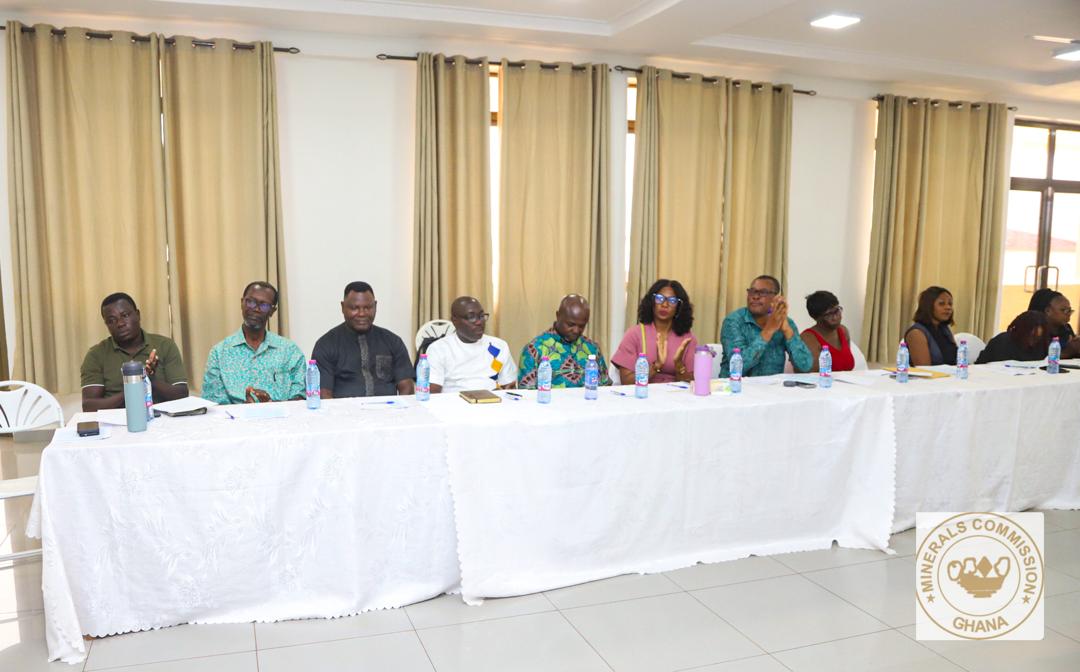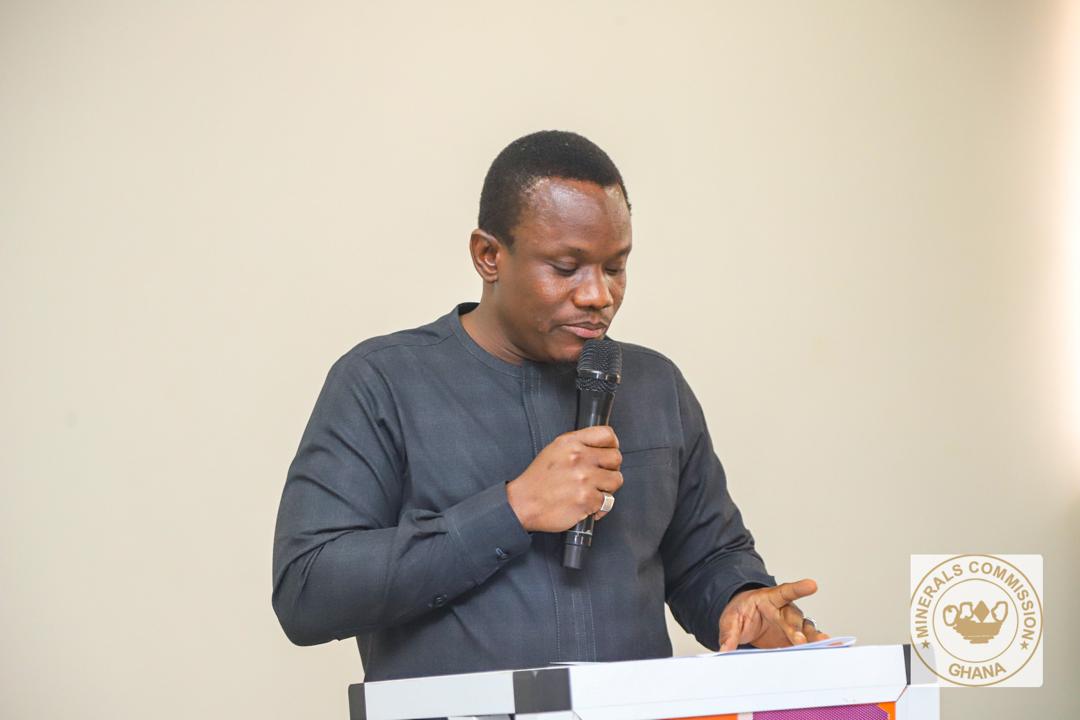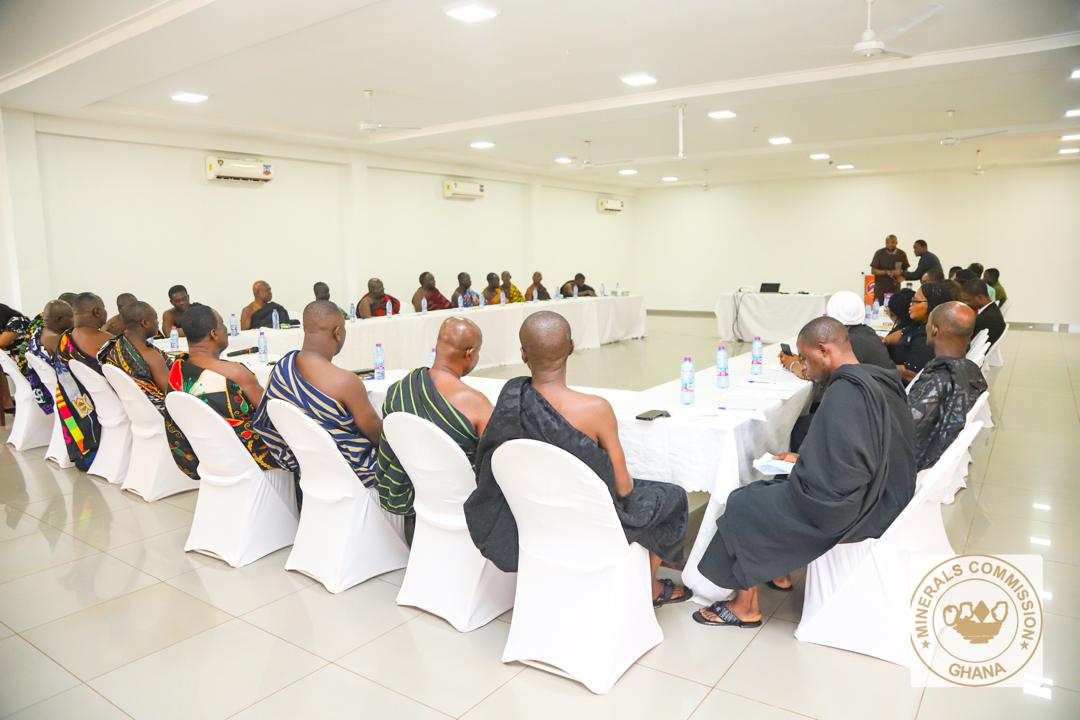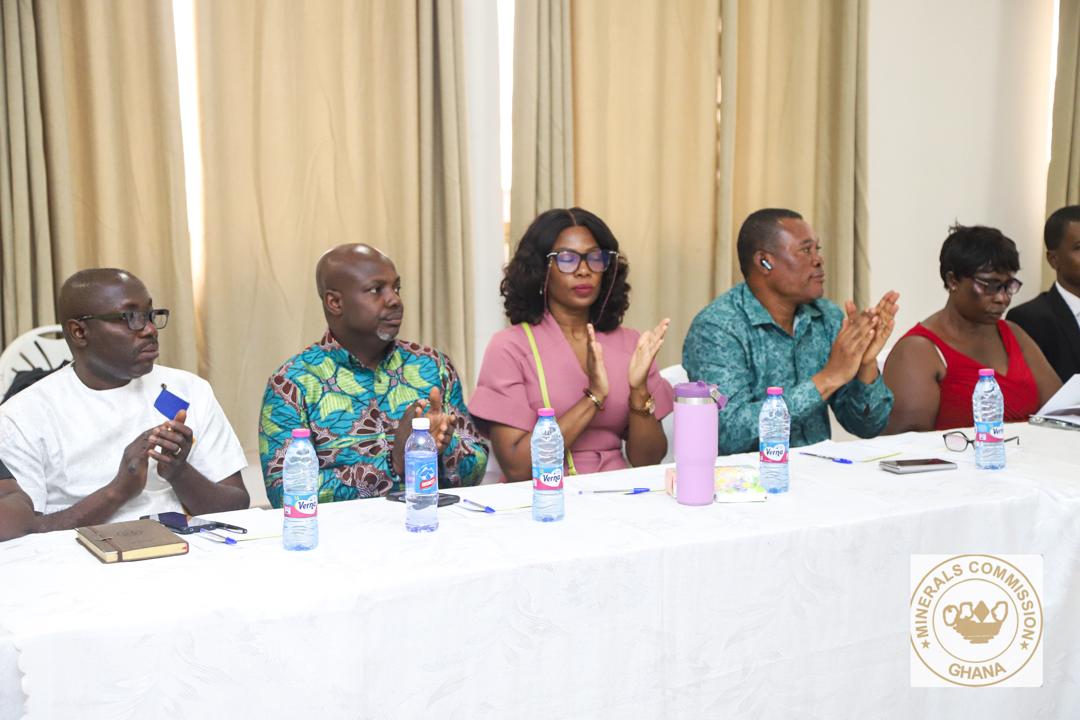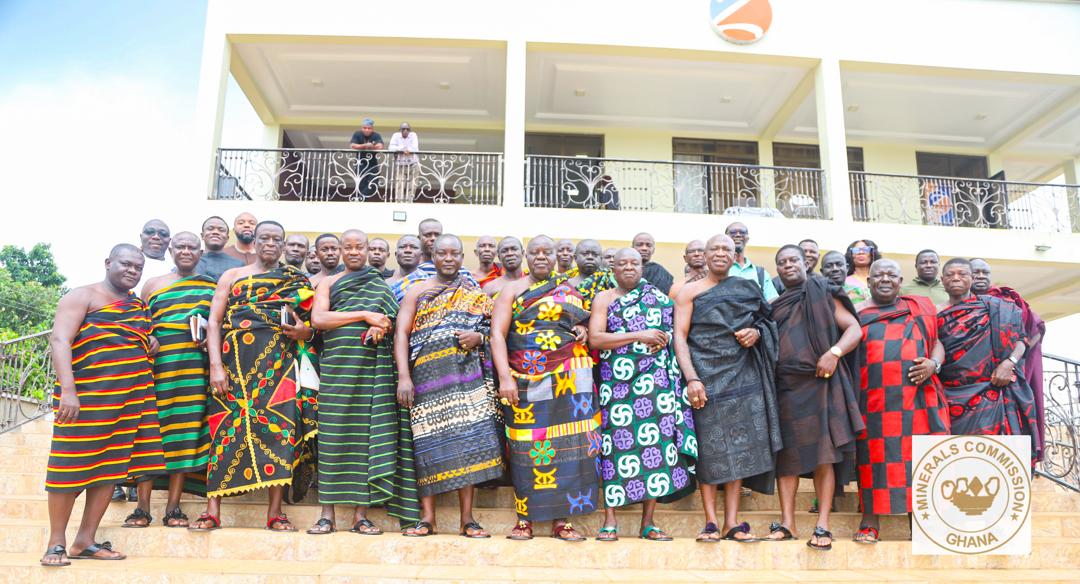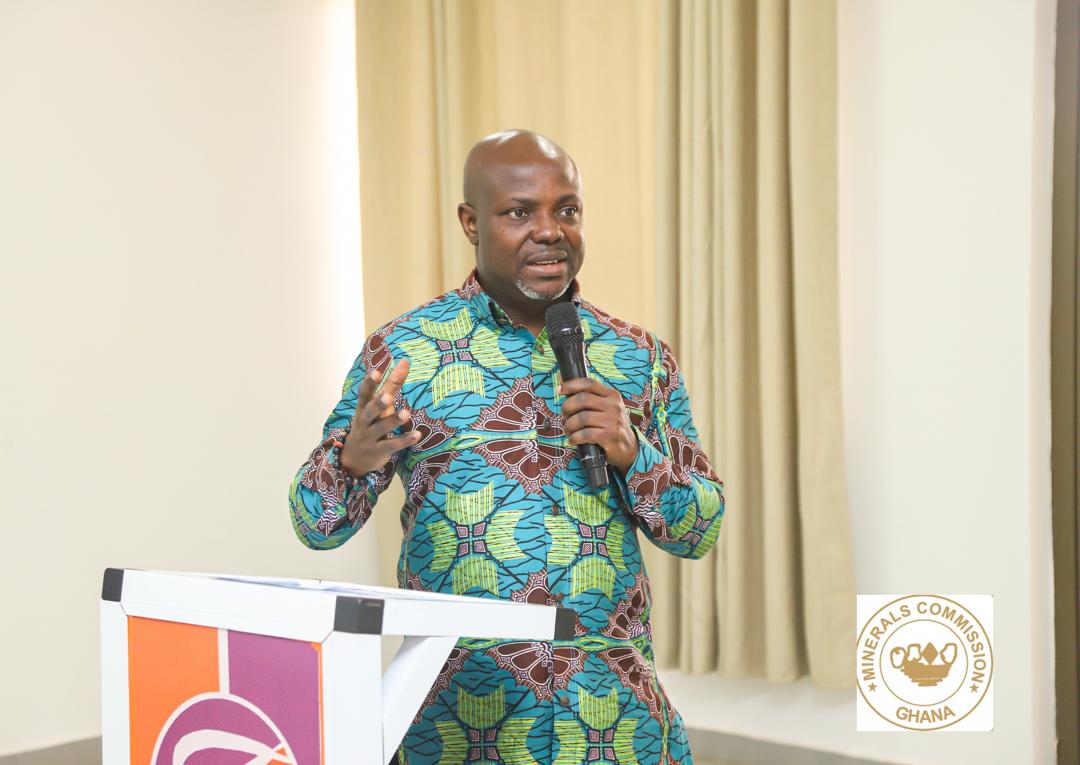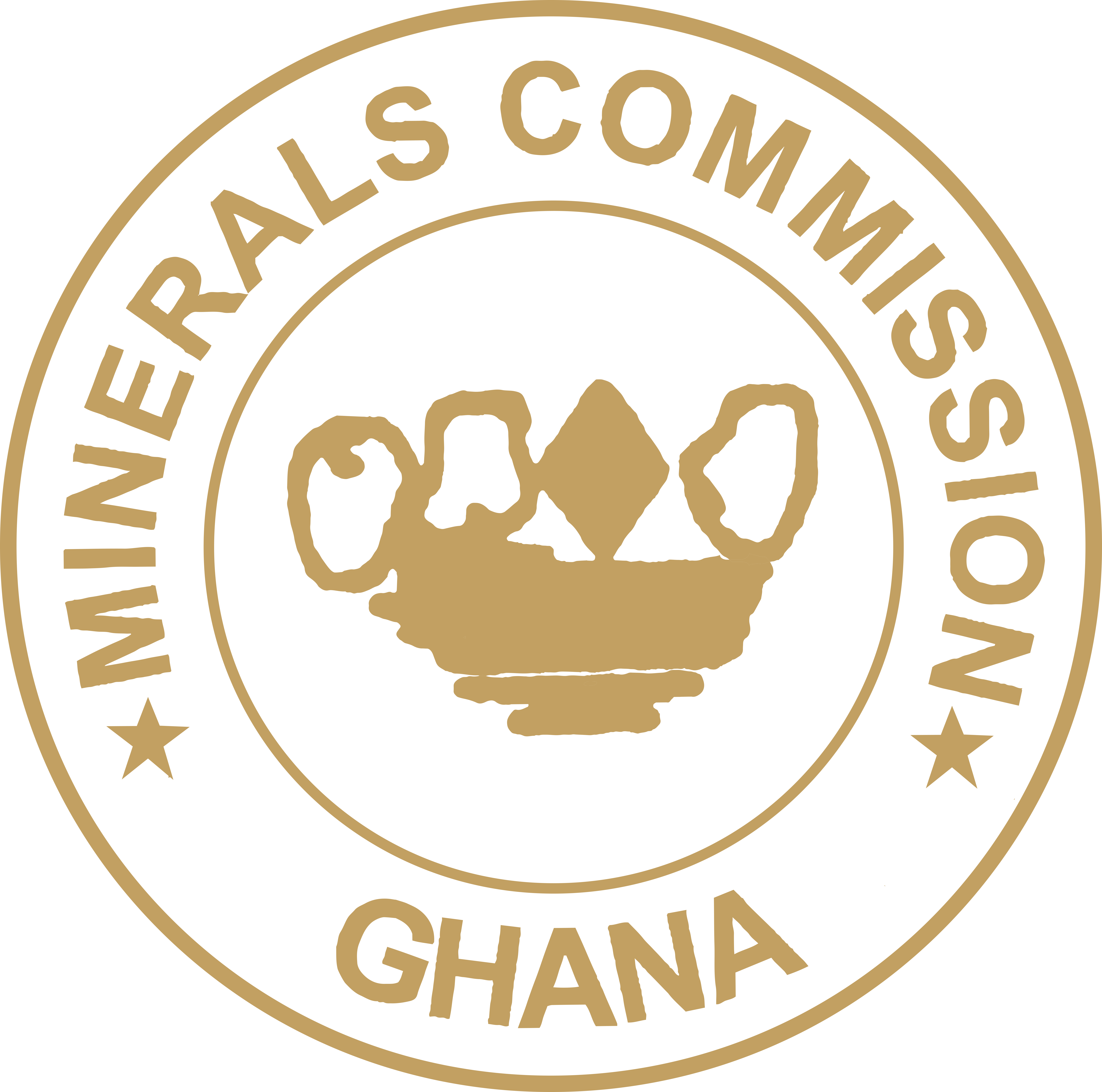Minerals Commission, Traditional leaders calls for enforcement of laws to promote sustainable mining practices in Ghana.
Nana Barima Twereku Ampem III, Paramount Chief of Ntotroso and President of the Ahafo Regional House of Chiefs, commend the Review Committee of the Minerals and Mining Act, 2006 (Act 703) to reinforce pragmatic measures for responsible exploration and exploitation of Ghana’s natural resources.
Speaking during consultation with the Ahafo Regional House of Chiefs, Nana Twereku Ampem III emphasized the need for adherence to due process in the licensing regime.
“The bottom line is this: when licences are being issued for mining within a municipality, the chief of that area must be involved. Engage the chief before final approvals are given, so that traditional authorities can play their rightful role in ensuring order and accountability in the process,” he stressed.
He called on the Minerals Commission to adopt this approach as a standard, noting that it would strengthen relations between the Commission and the traditional authorities.
Nana Twereku Ampem III further indicated that Nananom had shared their concerns during the engagement and that all such views would be documented and submitted to the Registrar of the Commission for consideration and integration into future policy frameworks.
The Paramount Chief, however, raised concerns about the inadequacy of royalties allocated to traditional authorities. He noted that the issue had been consistently raised by both the Regional House of Chiefs and the National House of Chiefs.
He lamented that although the Administrator of Stool Lands is legally mandated to manage and disburse funds due to Nananom, the current arrangement sees proceeds channeled through the Ghana Revenue Authority and into the Consolidated Fund—which has the potential of affecting the value of the allocation to support meaningful socioeconomic development in their areas.
“As we speak, the government owes Nananom significant sums, both past and current. To prevent these recurring challenges, disbursements meant for us should go directly through the Administrator of Stool Lands. That way, each chief can access what is due them without having to depend on allocations from the Consolidated Fund,” he stated.
Addressing the Ahafo Regional House of Chiefs Mr. Nelson Ahedor Director in charge of Small Scale Mining emphasized the need to review the Mining Policy, followed by an examination of potential amendments to the Minerals and Mining Act.
He indicated that the Minerals Commissions primary objective is to foster a collaborative relationship with Nananom, and today’s engagement marks the beginning of this partnership.
He recognize the significance of traditional authorities in the mining sector, particularly as custodians of the land where minerals are extracted. Your role is pivotal, and we cannot effectively engage in these discussions without your input.
The Manager of Legal, Mr. Josef Iroko, provided an overview of the Minerals and Mining Law, Act 2006 (Act 703), and outlined significant amendments to Ghana’s mining laws. He explained that the proposed Community Development Agreement (CDA), which seeks to allocates 1% of mining companies’ revenue, would help improve community development in an equitable manner.
Mr. Iroko highlighted the critical role of Chiefs and traditional leaders as allodial owners of the land and their entitlement to compensation as per Ghana’s mining laws.
He discussed the current state of the mining laws and regulations, as well as administrative and regulatory guidelines. He spoke about the importance of Parliamentary ratification of mining leases and the rights and responsibilities of District Mining Committees in overseeing mining activities within their jurisdictions.
Mr. Iroko further announced the introduction of a medium-scale category, a new classification to bridge the gap between small-scale and large-scale mining operations. He further noted that there would be a need to review and renegotiate existing mining contracts to ensure fairness and alignment with national interests.
Furthermore, we propose to amend Section 20 of the law to mandate the Minerals Commission to proactively disclose various information regarding mineral rights, including agreements, licenses, payments, revenues, and production volumes. This move is in line with our commitment to the Extractive Industries Transparency Initiative (EITI) and will enhance accountability and transparency in the mining sector. He added.
In line with international best practices, we will ensure that certain confidential information of a proprietary nature is protected. Our proposal is informed by the experiences of other countries, such as Guinea, Liberia, and Sierra Leone, which have made significant strides in promoting transparency in their mining sectors.
Mr. Aryee reemphasized the multifaceted challenges confronting the mining sector and presented strategic recommendations derived from the draft policy, which are as follows:
Decentralization of the Minerals Commission: A key strategic recommendation involves the decentralization of the Minerals Commission. By bringing services closer to mining communities, the Commission aims to enhance support for small-scale miners, improve accessibility, and foster a more responsive regulatory environment.
Deepening Community Relations and Engagement: Recognizing the importance of harmonious relationships between mining companies and host communities, the draft policy emphasizes the need to deepen community relations and engagement. This approach is designed to mitigate conflicts, promote mutual understanding, and ensure that mining activities are conducted in a socially responsible manner.
Local Content and Local Participation Development: The policy underscores the importance of ensuring that local communities and businesses derive meaningful benefits from mining operations. By promoting local content and participation, the sector can contribute more effectively to the economic development of host communities and enhance the overall sustainability of mining activities.
Health and Safety: Enhancing occupational health and safety standards is a critical component of the policy recommendations. This includes measures to eliminate child labor in mining and protect the well-being of workers. By prioritizing health and safety, the sector can reduce risks, improve working conditions, and promote a culture of responsibility.
Fiscal Transparency: The draft policy advocates for reforms in fiscal policies to ensure fair revenue distribution and improved financial governance. By enhancing transparency and accountability in fiscal matters, the sector can build trust, reduce the risk of disputes, and ensure that mining activities contribute equitably to national and local economies.
These strategic recommendations are designed to address the complex challenges facing the mining sector and promote a more sustainable, equitable, and responsible approach to mining. By implementing these measures, the sector can enhance its contribution to economic development, improve social outcomes, and ensure that mining activities are conducted in a manner that benefits both current and future generations.
END
